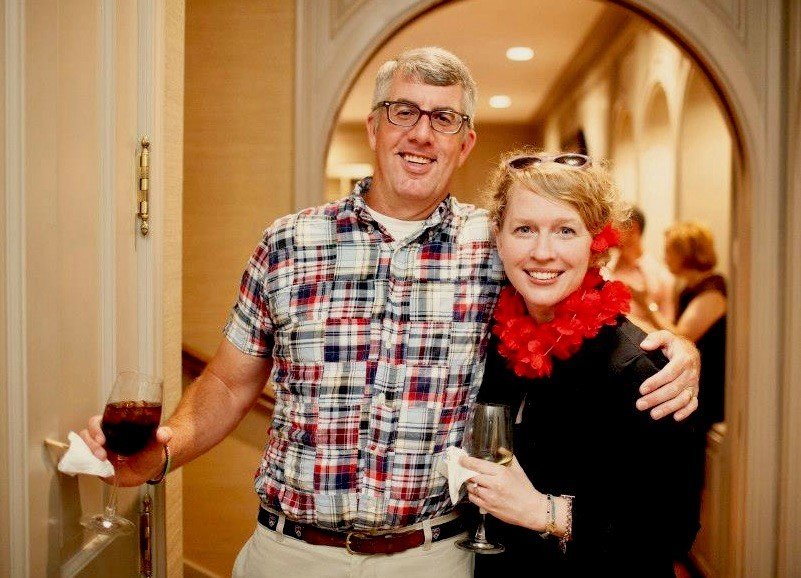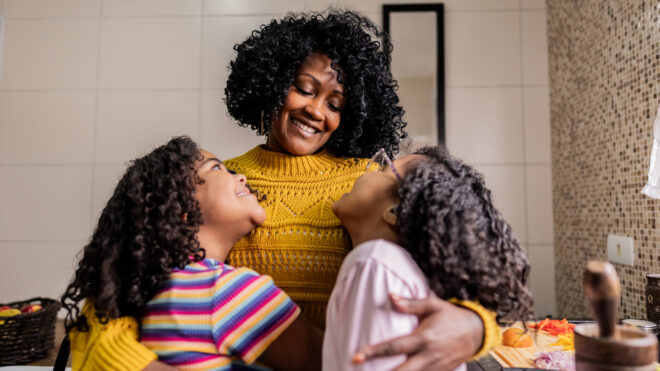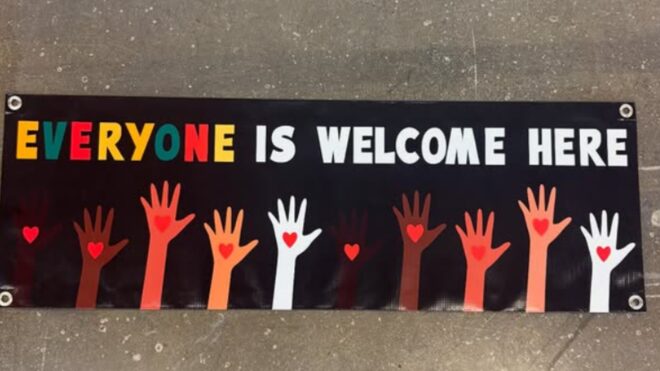
Now that the CDC has strongly advised against social gatherings of 50 or more and President Trump has further suggested that Americans should not congregate in groups above 10, the words “social distancing” and “self-isolation” are on everyone’s minds. According to experts, the coronavirus is spreading so rapidly that our best defense is to retreat into our homes and quarantine ourselves to limit the chance of exposure. Getting everyone on board with this isn’t always easy, however — especially if you have teenagers, and run the risk of totally destroying their social lives.
Concern over the coronavirus has been swirling for weeks, ever since it began in late December in Wuhan, China.
As it quickly made its way into other countries, including the US, Americans remained uncertain about just how serious the virus really was.
All that took a dramatic turn last week, however, when the World Health Organization officially declared the coronavirus, also known as COVID-19, a pandemic, and both the White House and the Centers for Disease Control and Prevention, or CDC, began issuing new warnings by the day.
During Trump's press briefing Monday, he didn't exactly mandate a nationwide lockdown.
Instead, he strongly urged Americans to stay indoors as much as possible for the next 15 days. This stems from the fact that COVID-19 appears to take about two weeks to incubate — during which infected individuals may feel fine and not exhibit any symptoms. That doesn’t mean, however, they aren’t transmitting the disease in the meantime.
At the same time, schools across 26 states have issued closings that may last through the end of the school year, sending more than 30 million school kids home on what must feel like an early summer break. Some college and universities also have already notified students to get their things from campus because on-campus classes and activities have been canceled for the rest of the semester.
What’s key, experts say, is to self-quarantine as much as possible — whether you have mild symptoms, are a silent carrier, or don’t want to risk contracting it from others.
But not everyone is on board with the new guidelines -- which is something Katherine Panill Center has been dealing with firsthand.
“A Note from the Meanest Parents in the World,” her March 14 Facebook post began.
“Last night, our teenage daughter wanted to go out with her friends,” Center wrote. “School’s been canceled, and the kids want to have some fun.”
"It was so cute that she even asked," Center shared. "She already knew the answer." (Spoiler alert: The answer was "No.")
“Saying no wasn’t easy,” she admitted. “You love your kids. You want them to be happy. It’s wildflower season! It’s gorgeous out there! Things don’t seem that bad yet. Can’t they have a little fun?”
The answer is still no, Center continued, and the reason why is both simple and terrifying.
“Y’all, there’s a pandemic,” the mother wrote. “It’s coming. It’s already here — spreading quietly in the US, person-to-person.”
At first read, those words sound pretty extreme. Sensationalist, even. But given all that's transpired in the last week, they are sadly true.
To date, the coronavirus has infected more than 173,000 people worldwide and caused nearly 6,000 deaths. In the US, there have been more than 5,100 confirmed infections and nearly 100 deaths, but those numbers are expected to grow in the coming days as the virus continues to spread.
And yet, despite the federal government intervening and the CDC issuing warning after warning, there has somehow been a split between those who are taking the threat seriously and those who believe it is overblown.
So far, those two camps appear to be (curiously) the younger generations and the older ones.
Part of the problem, Center says, is that it "doesn't seem real" yet. At least, not to those who have yet to see the destruction it causes.
“You aren’t hearing about it here yet … in part because it has a long incubation period and because we’ve barely been testing,” Center continued.
But that doesn’t mean it isn’t real.
“Experts on this thing — and we trust the experts — say this virus will infect 40 to 70 percent of the US population,” the mother warned. “Of those infected, between 1 and 4 percent will die.”
Although 1% to 4% may not sound like a very high number, when you stand back and do the math on a nation with 327 million people, it's staggering.
“Let’s say a little less than half the population gets it,” Center suggested. “And let’s use a low percentage rate for deaths. Even if it’s 1 percent, that’s still 1.5 MILLION people.”
That’s right — 1.5 million.
Put that way, the coronavirus’ threat suddenly becomes a whole lot more sobering.
So, at the urging of experts, Center and her family are practicing social distancing -- yes, even if that makes her daughter "uncool."
In basic terms, social distancing is the practice of maintaining a safe and healthy distance from others of at least 6 feet. (It’s something that becomes infinitely harder when walking down a busy city street, through a crowded school hallway, or even through a bar or restaurant.)
This limits the contact you may come into with others so transmitting the virus becomes far less likely, but it isn’t quite enough, which is why experts are also urging people to stay home and self-isolate.
“Every single reduction in the number of contacts you have per day with relatives, with friends, co-workers, in school will have a significant impact on the ability of the virus to spread in the population,” Dr. Gerardo Chowell, chairman of the department of population health sciences at Georgia State University, told the New York Times.
There's still so much that's not known about the virus -- though everything we do learn about it is rather scary.
Even though many parents are grateful that the coronavirus seems to be sparing children, because of the small number of pediatric cases reported so far, some theorize that children are actually just affected far less. They may, in fact, be silent carriers of the disease and not even know it — which in turn, only increases the likelihood of spreading it.
So Center feels no remorse for playing the role of "mean mom." In fact, she welcomes it.
Yes, her kids can still go on walks, she said. They can play with each other, and toss a frisbee in the backyard with the dog. They can even “gang up and beat their dad at Monopoly all day long,” she continued.
“But they can’t hang out with other kids. Or grownups, either,” Center wrote. “This is a public health crisis — we have to do everything we can so fewer people crash the health system and fewer people die. Every day matters.
“Let’s be mean parents together,” she declared, “as we all practice social distancing at home.”
(Sounds like a good plan to us.)




